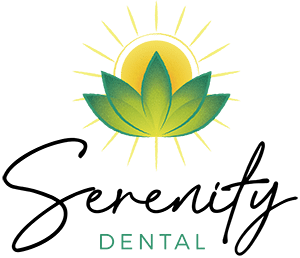Oral health isn’t just about brushing and flossing. Did you know that your genes have a lot to say about your teeth and gums? Just like hair or eye color, some oral health traits run in families. This means your family history plays a role in how strong your teeth are or how likely you might be to get cavities.
Understanding the role of genetics in oral health can help you take better care of your smile. While you can’t change your genes, knowing what to expect can help you be proactive. It’s like having a heads-up on what could happen, so you can make smarter choices for your teeth.
By looking at your genetic makeup, dentists can better predict certain dental conditions, helping you manage them before they become a big problem. It’s an exciting way that science is helping us understand our bodies better. So, let’s dive into how our genes are connected to oral health and what we can do about it!
Understanding Genetics and Oral Health
Genetics are like instructions for our bodies, passed down from our parents. These instructions help determine physical traits like height or hair color. Genetics also play a role in oral health. They influence how teeth and gums develop, and can make you more or less likely to face certain dental problems. For instance, if your parents or grandparents had strong, healthy teeth, there’s a good chance you might, too. However, genetics can also contribute to complications like weak enamel or misaligned teeth.
Some people may naturally have softer enamel, which makes their teeth more prone to decay. Others might produce less saliva, leading to dry mouth and other issues. Genetics also affect gum health, potentially increasing the risk for gum disease. Understanding these genetic influences helps dentists create personalized care plans to manage and prevent problems.
By becoming aware of how genetics can affect oral health, you empower yourself to take proactive steps. Knowing what conditions might be inherited allows you to focus on preventive care, ensuring you maintain a healthy smile despite your genetic predispositions. It’s not just about brushing and flossing—it’s about understanding your unique dental blueprint.
Common Genetic Dental Conditions
Several dental issues can be linked to genetics. Knowing your family history can be a useful tool in managing your oral health. Here are some common genetic dental conditions:
1. Tooth Decay: While sugar and poor hygiene are major factors, genetics can influence how prone you are to cavities. If your family has a history of tooth decay, you might need to be extra diligent with your dental care.
2. Gum Disease: Certain genes may make you more susceptible to gum disease, affecting how your body responds to bacteria in the mouth. Regular dental check-ups can catch early signs before they become severe.
3. Crooked Teeth: Alignment issues like crowding or spacing often run in families. If parents needed braces, there’s a good chance their kids might too. Orthodontic evaluations help address these concerns early.
4. Tooth Sensitivity: Some people have naturally sensitive teeth due to thinner enamel. If sensitive teeth are common in your family, you might experience discomfort with hot or cold foods more frequently.
Understanding these genetic conditions can help you take control of your oral health. When you know what runs in your family, you can collaborate closely with your dentist to create a care plan tailored to your needs. Early intervention and targeted care strategies make managing genetic dental conditions much easier.
The Science Behind Genetic Testing in Dentistry
Genetic testing is becoming an exciting tool in dentistry. By analyzing your DNA, dentists can identify certain markers that indicate a predisposition to specific oral health issues. This technology allows for a more personalized approach to dental care. Unlike other tests, genetic testing focuses on identifying risks before they become problems, making prevention more targeted and effective.
The process usually involves a simple saliva swab, capturing the genetic material needed for analysis. Dentists can then look for genes linked to conditions like gum disease or tooth decay. This helps to predict how your teeth and gums might react to various environmental factors. Although genetic testing provides valuable information, it does have its limitations. It cannot predict every dental issue since lifestyle and diet also play significant roles.
Benefits of genetic testing in dentistry include early identification of risks and the ability to tailor preventive care plans specifically to your needs. However, patients should remember that it is just one piece of the puzzle. Regular dental visits and good oral hygiene remain essential for maintaining optimal oral health.
Combining Genetics with Good Oral Hygiene Practices
Knowing your genetic predispositions is just the start. Combining this knowledge with effective oral hygiene practices ensures the best protection for your teeth and gums. Here are some tips to help you maintain oral health when genetics play a role:
1. Stay Consistent with Routine Care: Brushing twice a day and flossing daily are non-negotiable. Good hygiene habits help protect against issues your genes might predispose you to.
2. Regular Dental Check-Ups: Visit your dentist regularly for check-ups and cleanings. This allows for monitoring and adjusting your dental care plan based on any changes.
3. Customized Dental Products: Consider using toothpaste and mouthwashes that cater to specific needs your genetic tests identified. For example, if you have a higher risk of gum disease, using products designed for gum health could be beneficial.
4. Eat a Balanced Diet: A diet rich in calcium and vitamins strengthens teeth and gums, countering certain genetic weaknesses.
By understanding the balance between genetics and hygiene, you can maintain a healthy smile throughout life. Knowledge is power, and knowing your genetic vulnerabilities allows you to take charge of your oral health with a proactive approach.
Conclusion
Exploring the role of genetics in oral health underscores the importance of personalized dental care. Understanding your genetic makeup can significantly impact how you approach dental hygiene, allowing you to be proactive rather than reactive. By combining genetic insights with consistent oral care practices, you’re better equipped to manage and maintain your dental health.
At Serenity Dental in Olathe, KS, we are dedicated to helping you understand your unique dental needs. Our experienced team is here to provide comprehensive dental care and guidance. Schedule your appointment today and discover how we can help you achieve a healthier smile tailored to your specific genetic needs.

